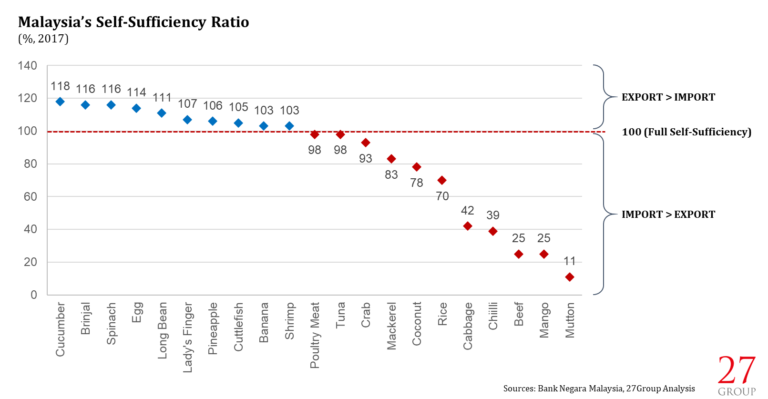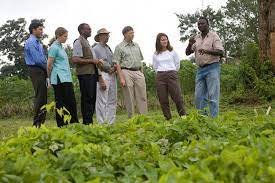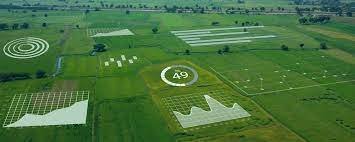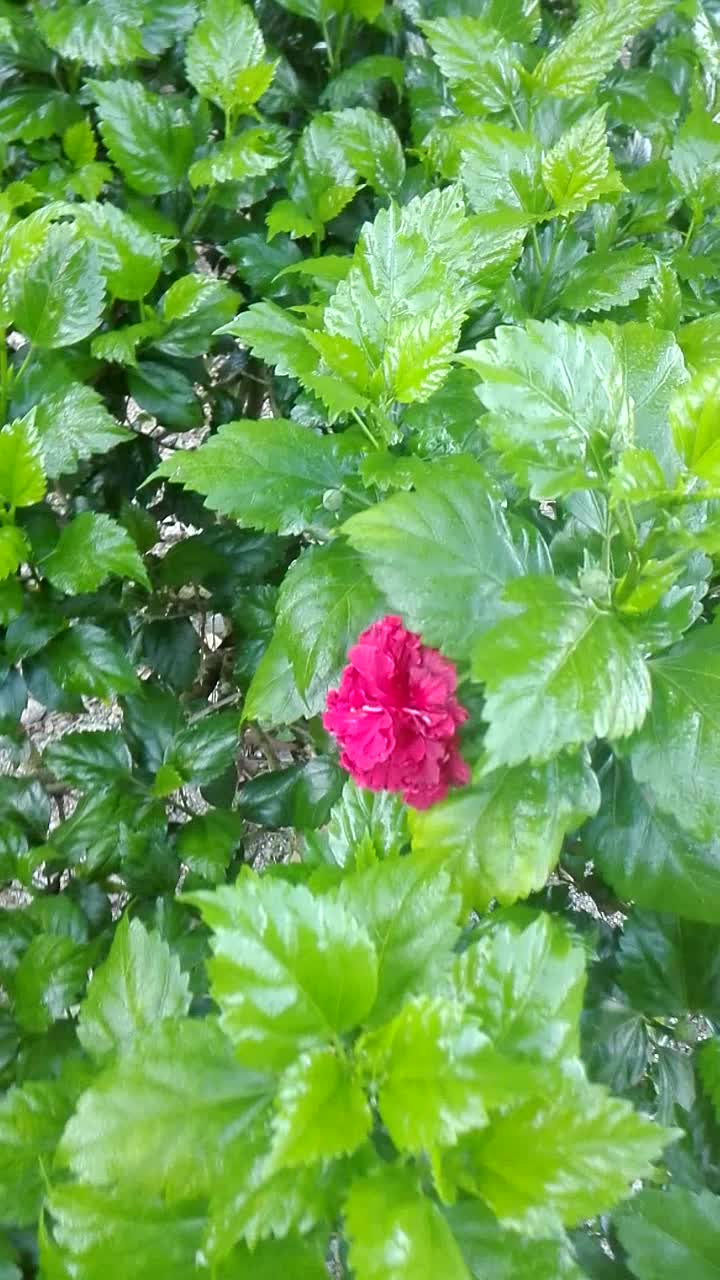Will the Lack of Food Security Crush Malaysia?

A lack of food security affects Malaysia’s prosperity. Taxes are spent on food, not on other projects. About 90% of all vegetable seeds are imported into Malaysia. This is according to a research paper submitted by Suahana Safari, entitled The Malaysian Agricultural Seed Industry. Why does this matter? Seeds grow the food Malaysia needs for the food supply. Malaysia spends over 15 billion Ringgit annually to import food. Also, the cost of seeds has increased by over 14%. During 2012-2016, Imported seeds surpassed exported seeds by about 13 billion Ringgit. The trend continues.
Seed History of Malaysia
In 2011, the National Seed Council was established with a focus on food security. One of the NSC’s main objectives was to produce high-quality vegetable seeds and genetic seed material. It takes quite a long time to produce seed stock. First, people need to learn how to produce seeds. Normally, seeds evolve to withstand pests and climate change over thousands of years. We can’t wait that long for food security. Seeds are modified, in a laboratory, which speeds up the process.
The focus at the NSC has been on coordination with international organizations like the Consultative Group on International Agricultural Research (CGIAR) and the International Rice Research Institute (IRRI), to strengthened shared technology in the seed industry. You know, these organizations need to network. The NSC continues to work on establishing seed production. I’m not sure why they focus on rice research, since there seems to be good rice production. Meanwhile, many students do not see agriculture as a viable career. There are no new workers and the current farmers continue to age.

Food Security and Imports
Vegetable seeds are as important to Malaysia, as they are to other countries. The world’s total conventional seed production rose over 100% and genetically modified seeds rose 600%. (Syngenta, 2016). Populations increase as does the demand for food. Seeds grow the food that we eat to create food security. According to an article from Best Food Importers, April 2020, Malaysia imports approximately 15 billion USD of its food annually. Almost 80% of the meat comes from outside the country, which is worth 837 million USD. Malaysia is one of the largest processors of chocolate. Yet, Malaysia still imports 95% of the cocoa beans, and quite a lot of sugar. If Malaysia produced these crops, it could be a rich country. Why isn’t Malaysia growing these crops?
Why Focus on Food Security When Oil is King?
Palm oil makes Malaysia, a lot of money. It doesn’t bring food security. Many of the stakeholders say there is enough food and palm oil is king. Malaysia’s economy shouldn’t be about oil It should be about food security and food production. There are over 7.7 billion people on Earth with 32 million of them in Malaysia. The numbers continue to grow. After the pandemic, and with the effects of climate change, the struggle will be on food sustainability. Malaysia must focus on vegetable seed production for food security. The trend of hunger among children in Malaysia had hit a plateau. Recently, that trend has been climbing.

Early this year, the Bill & Melinda Gates Foundation turned its focus on Agriculture. Bill Gates was featured in The Guardian, April 2021, in an article by Nick Estes. He questioned why Mr. Gates had become the biggest farmer (or farm landowner) in the world. At the same time, the Gates Foundation created an Agriculture outreach. The Foundation’s goal: “To support farmers and governments in sub-Saharan Africa and South Asia that are seeking a sustainable, inclusive agricultural transformation—one that creates economic opportunity respects limits on natural resources and gives everyone equal access to affordable, nutritious food.“ (https://www.gatesfoundation.org/our-work/programs/global-growth-and-opportunity/agricultural-development) This focus includes food security. Bill Gates said in an interview that his investments in farmland were twofold: to produce biofuel as alternative energy and to create the Agricultural “arm” of the Gates Foundation.

Image Courtesy of businessinsider.com – click on image to go to story
How to Create Global Food Security?
The Gates Foundation is currently working with country food supply systems in Africa, India, and the Philippines. They are supporting public-sector crop (seed) breeding programs in Africa and Asia to enhance food security. They are investing in crop research and seed production to increase productivity. The safety of the farmers, as they work to combat the effects of climate change is the focus. These climate changes include droughts, flooding, high temperatures, and pest control. So basically, the Foundation supports any new research that boosts food security. In addition, they fund countries that are working to increase photosynthesis research. Photosynthesis research may ultimately tie into energy production research.
Where’s the Beef?
Along with vegetable seed production and breeding, the Gates Foundation is looking at sustainable meat production. It is investing money for small stakeholders. With regional demand for livestock products rapidly growing, access to better feed, breeds, and veterinary services will be critical to managing sustainable production on smallholder farms.

Digital Technology meets Food Security
Bill Gates is Microsoft. The Foundation focuses on providing smallholder farms with digitally enabled platforms. These tools will allow farmers to monitor crops. It will give them access to guides, detailed information on soil improvement, access to financial services, and market opportunities. The aim is to increase farmers’ incomes. This will encourage small stakes farming among young people.
These are the types of initiatives needed in Malaysia. As many of you know, not only do I write my own blogs, but I also proofread and edit papers for Universities throughout Malaysia. Schools are working to educate students for tomorrow’s food security challenges. They are already writing papers on how to solve these problems.
We must encourage Malaysian youth. Let them know farming is a noble profession. Farming must be profitable for long-term growth. We need tools to monitor the economics of farming. Malaysia needs to start work on this today. We must make sure that Malaysia is food secure for the future. Economic inflation will/is causing food prices to rise. Malaysia must grow its own food with its own seed stock. It is imperative that Malaysia becomes independent of the need for food imports, for many reasons. The good news is, global help is out there, we only need to ask for it.
How do you think we can get Malaysia’s youth interested in Agriculture? Please leave a comment! I love to hear from you.

